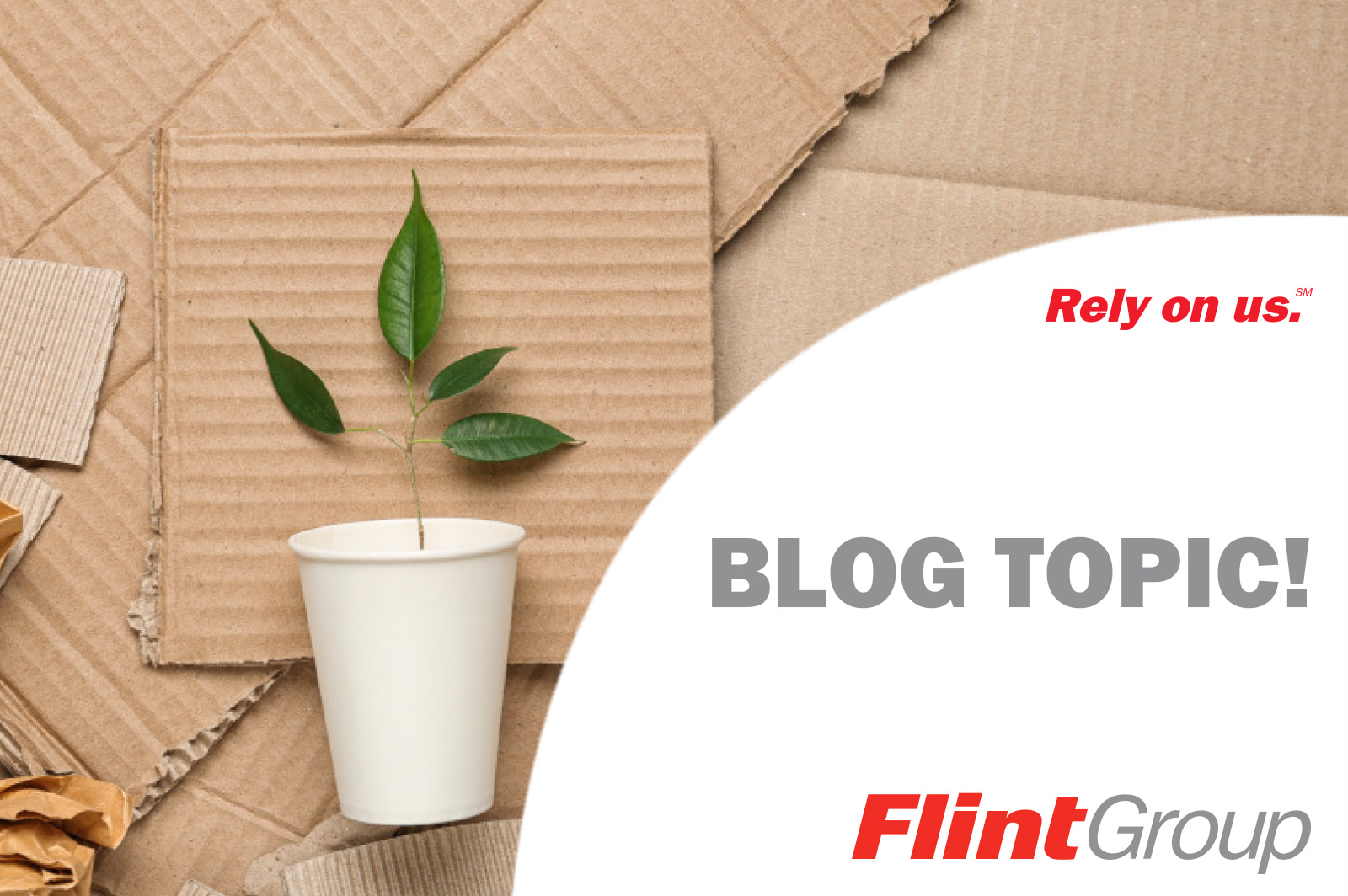Sustainability in corrugated packaging – Inks & coatings play an important role
The corrugated packaging industry is experiencing a significant shift towards sustainability, driven by brand owners' ambitious environmental goals and changing consumer preferences. In an era dominated by conversations about eco-conscious printing and a circular economy in packaging, it's worth considering what 'more sustainable' corrugated packaging means.
Material changes
Brand owners are setting ambitious sustainability goals which are directly impacting converters. Many businesses are seeing increased demand for packaging with higher recycled content or a push for fully recyclable or compostable packaging solutions. Furthermore, brands are increasingly asking their suppliers to help reduce carbon emissions across the supply chain, prioritising those that can actively demonstrate they are making a difference with more eco-conscious packaging designs.
In response, today’s converters find themselves facing the complex task of meeting brand owners’ sustainability targets without compromising packaging performance. Importantly, as well as supporting the environment, corrugated packaging still needs to maintain high degrees of structural integrity and product protection, ensuring high print quality, meeting food safety standards if required, and achieving cost-effectiveness.
Substrates often take centre stage in this regard, and fibre-based materials are gaining interest as a compostable and recyclable alternative to plastic packaging. As a result, the industry is starting to adopt more eco-conscious substrates made from high recycled content or fibres from responsibly-managed forests, where trees are replanted faster than they are consumed. However, materials are just one part of the story.
The role of inks and coatings
With the complete packaging supply chain under scrutiny, inks and consumables – as contributors to packaging development – play a part in reducing overall carbon output. Substrates like corrugated board can have a positive environmental impact, but this is restricted if the inks and coatings applied to them are not equally eco-conscious, as consumables have their own carbon footprint that must be considered alongside substrate choice.
One example of a product designed to support converters in creating more sustainable packaging is Flint Group’s TerraCode Bio. This water-based series has recently been expanded with an extender and coating series that replaces traditional components with bio-based, renewable and recycled raw materials. This ground-breaking range for Paper & Board is specifically designed to maintain conventional ink systems' print and resistance properties while maximising renewable content – where formulations contain up to 90% ethically sourced, bio-based materials. TerraCode Bio meets the needs of Paper & Board print applications while helping printers reduce their CO2 emissions by up to 40% when using certain extenders from our range.
A partner like Flint Group can ensure that, in addition to delivering colour excellence and consistent, high print quality, products like TerraCode Bio are safe, compliant with global legislation, and ethically part of a pack's sustainability credentials. Accordingly, Flint Group follows strict national and international legislation, protocols, and policies to determine which materials are, and crucially are not, selected for use in formulation.
Products designed for circularity
At Flint Group, we have built our reputation as a market leader in developing next-generation inks and coatings dedicated to the needs of the corrugated packaging market. Our teams are focused on identifying where inks and coatings could play a more significant role in supporting brand-wide sustainability goals and arming printers with a robust set of tools to meet their sustainability objectives. To address this critical topic, we introduced our PRISM sustainability strategy, which provides three key pillars around which we focus all our environmental efforts and where we can have the most significant impact: Products, Planet, and People.
TerraCode Bio is one such product that is helping the corrugated print industry improve its environmental performance. With water-based products like this that prioritise renewable components, Flint Group is tirelessly working to innovate its product ranges to help printers and their brand customers deliver on their sustainability goals. We pride ourselves on being a true market leader in developing next-generation technologies and making them widely accessible.
For more information on our ink solutions for corrugated packaging, please visit www.flintgrp.com/segments/paper-board-eu or email paper.board@flintgrp.com.

